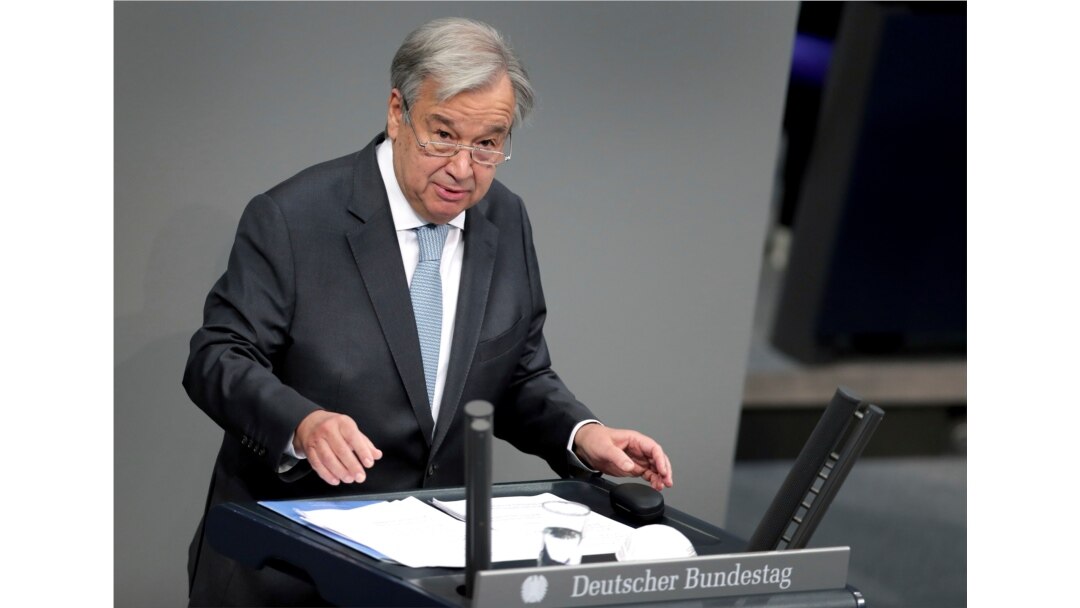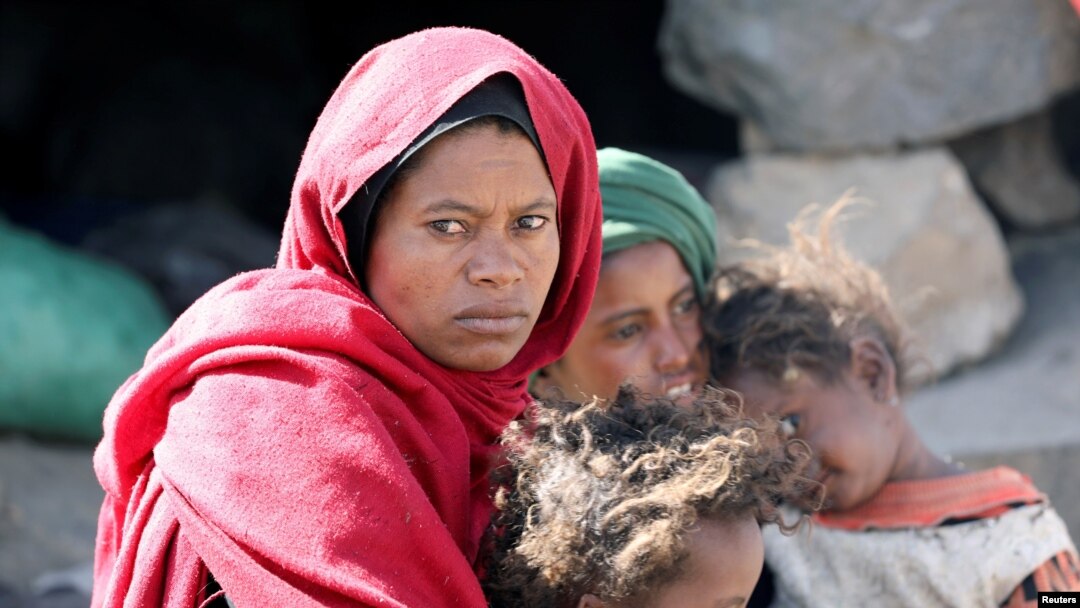U.N. Secretary-General Antonio Guterres expressed disappointment Monday that a donors conference for Yemen received less than half of the nearly $4 billion needed to prevent a catastrophic famine from potentially killing millions of people in the war-torn country.
“Millions of Yemeni children, women and men desperately need aid to live,” Guterres said in a statement. “Cutting aid is a death sentence.”

UN Secretary-General Antonio Guterres delivers a speech during a meeting of the German federal parliament, Bundestag, at the Reichstag building in Berlin, Germany, Friday, Dec. 18, 2020.
The $1.67 billion in pledges committed at the virtual pledging conference co-hosted by the United Nations, Sweden and Switzerland, fall far short of the $1.9 billion needed to avert famine and the $3.85 billion the U.N. says is needed this year overall.
Monday’s total is less than the U.N. received for its Yemen humanitarian response plan in 2020. Those funding shortfalls led to a reduction in critical programs and food rations, putting many on the path to acute hunger.
“The best that can be said about today is that it represents a down payment,” Guterres said, urging donors to reconsider what they can do to prevent “the worst famine the world has seen in decades.”
More than six years of war between the Saudi-backed government of President Abdu Rabu Mansour Hadi and the Iranian-supported Houthi rebels has pushed the Middle East’s poorest country to the brink.
The United Nations says 16 million Yemenis are going hungry, of which 5 million are one step away from famine. Some 50,000 people have already slipped into famine-like conditions.
There is no shortage of food available – there is plenty in the country’s markets - but after years of war and economic collapse, people can no longer afford it.
“Today, reducing aid is a death sentence for entire families,” the U.N. chief warned donors.
Children are at particular risk, 400,000 of them face severe acute malnutrition and could die without urgent treatment.
“This war is swallowing up a whole generation of Yemenis. It has to stop.” Guterres said.
U.S. Secretary of State Antony Blinken speaks at the State Department in Washington, Feb. 4, 2021.
Contributions
Yemen faced possible famine in late 2018, but donors — many of them from the region — stepped up and averted a catastrophe. But contributions from Saudi Arabia, the United Arab Emirates and Kuwait, dropped dramatically last year. Monday, they announced $430 million, $230 million and $20 million, respectively. Kuwait’s donation is to be paid over two years. Their donations fall short of earlier ones.
U.S. Secretary of State Antony Blinken announced nearly $191 million in new funding. He said that brings Washington’s 2021 contributions to Yemen through the end of September 2021 to $350 million.
Ministers from some of the largest donor nations also announced their contributions.
The European Union pledged $114.66 million; Germany said it is giving $241 million, of which $176 million was already paid; Britain promised $121 million; Japan said it will give at least $49 million this year; Canada offered about $55 million and Norway pledged $23 million.
A girl stands outside her family's hut at a camp for internally displaced people on the outskirts of Sanaa, Yemen, March 1, 2021.
Failure of Humanity
“The problem is the biggest donors in too many cases announced substantial reductions, particularly compared with 2019, and that’s why we have such a huge problem,” U.N. Humanitarian Chief Mark Lowcock told reporters after Monday’s conference.
“It’s going to be impossible with such limited resources to prevent a large-scale famine,” he added.
“With a $2 billion shortfall, the decisions today of the richest countries in the world to wash their hands of responsibility is a failure of humanity,” said David Miliband, head of the International Rescue Committee, which works in Yemen.
“This means continued massive cuts to emergency food, water, shelter and medical support,” said Jan Egeland, the head of the Norwegian Refugee Council, who is on a mission to Yemen this week. “The shortfall in humanitarian aid will be measured in lives lost.”
He said Yemen needs more money, a cease-fire, and full access to people in need in order to avert a catastrophe.


